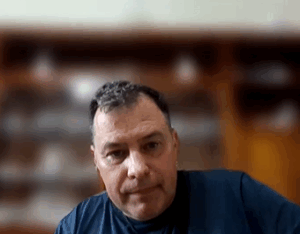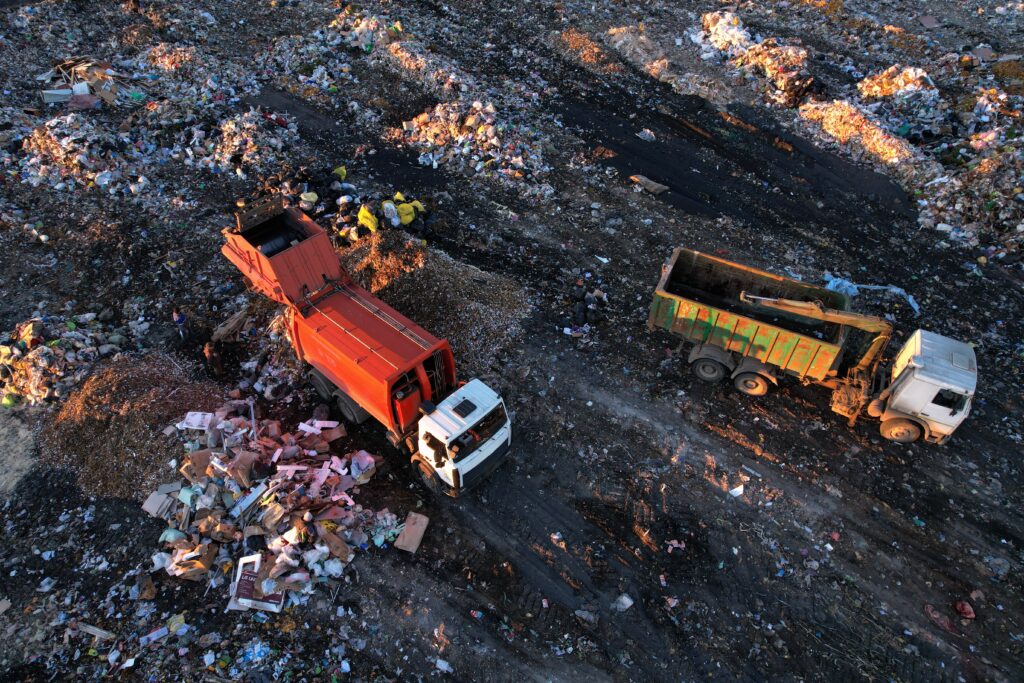The warning comes after a BBC Disclosure investigation today (16 June 2025) revealed that up to 100 truckloads of Scotland’s waste could be moved to England every day once the ban is in place.
The Scottish ban on the landfilling of Biodegradable Municipal Waste (BMW) is set to come into effect on 31 December 2025 and looks unlikely to be delayed.
David Balmer, regional remediation manager at ERS Remediation who was interviewed by the BBC for the Disclosure report, told letsrecycle.com: “I doubt the ban will be pushed back again.
“It’s possible we could see some kind of transitional arrangement, but at the moment the date is set in stone as the Scottish legislative process will take too long to move it back.”

The ban was first proposed in 2005 to come into effect in 2021 but was delayed to 2025 during the COVID-19 pandemic.
Due to lack of capacity within Scotland, Balmer said that many in the sector have been looking to transport their waste to England.
However, the landfills and Energy from Waste (EfW) sites closest to the border have largely indicated they cannot take on any additional capacity.
He added that sites further down England – in areas such as Merseyside and Teesside – have been more receptive, but the journey would take one to three days depending on the part of Scotland the waste is coming from.
David Palmer-Jones, CEO of business recycling company CIRQLR, said: “Scotland’s waste crisis was avoidable and will be a wake-up call for Defra which is already putting in place the right regulatory changes in England, to reduce the production of residual waste – starting this year in business premises with simpler recycling and extending to domestic properties from next year.
“England must now push through regulations which underpin the move to greater circularity of materials, and at the same time ensure the right incentives are in place to stimulate the investable conditions needed to build further waste and recycling infrastructure.”
What is being banned in Scotland?
The ban will include mixed waste and separately collected waste from households.
This includes paper and cardboard, glass, metals, plastics, bio-waste, wood, textiles, packaging, waste electrical and electronic equipment, waste batteries and accumulators.
It will also ban bulky waste such as mattresses and furniture, mixed waste and separately collected waste from sources other than households, where such waste is “similar in nature and composition to waste from households”.
Balmer noted that the inclusion of “separately collected waste from other sources” was not present in the original consultation and has caused confusion for the industry.
He said: “Originally, we thought it was just council black bin bags but suddenly it’s not. That’s what’s turned the industry on its head.”
The ban does not include waste from production, agriculture, forestry, fishing, septic tanks and sewage network and treatment, including sewage sludge, end-of-life vehicles or waste generated by construction and demolition activities.
The issue of capacity
The ban will lead to an increase in the volume of waste that is sent to incineration.
A Zero Waste Scotland report in October 2024 warned that Scotland will see a capacity deficit of about 600,000 tonnes in the first year.
This has been compounded by the closure of the Levenseat Renewable Energy Energy Recovery Facility (ERF), which was announced in May 2025.
The closure means an additional approximate 150,000 tonnes of EfW capacity has been taken out of the equation.
At the same time, Balmer warned that, while Scandinavian and Baltic states are a significant export market for Scottish waste, the summer months mean demand will be low.
He said: “The seasonal uptake is unreliable so there is this nervousness in Scotland. The uncertainty makes it very, very difficult for the country.
“Personally, I do not think the ban is appropriate.”





Subscribe for free